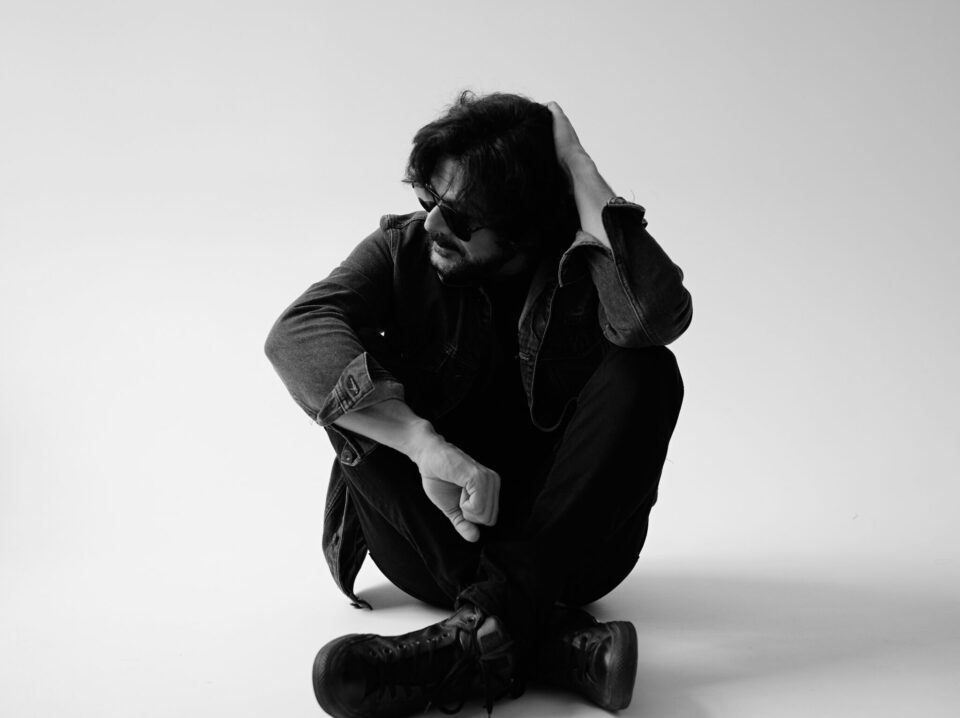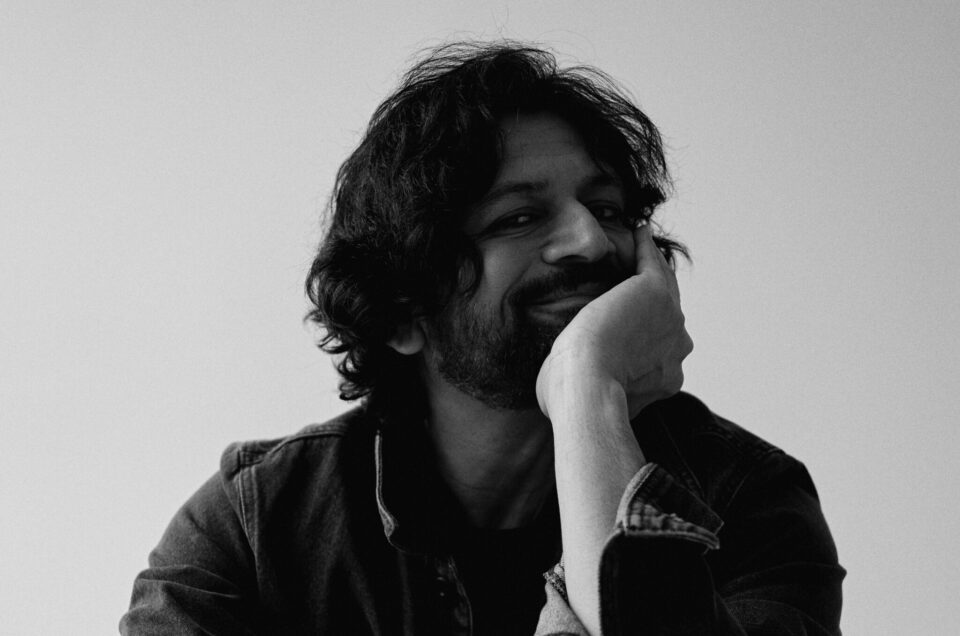Faisal Kapadia on Turning to Synth-Pop and Linking Up with Anuv Jain
One half of legendary Pakistani pop-rock duo Strings, Kapadia talks about everything from ‘Coke Studio’ to his solo album ‘Zindagi Jahaan Le Jaaye’ and a potential collaboration with Ankur Tewari, Karsh Kale and Arnob
When Pakistani pop veteran Faisal Kapadia and his Strings co-founder Bilal Maqsood put an end to the band in 2021, it was a 33-year chapter in music that was being closed. Kapadia says over a Zoom call that he just didn’t want to pursue music anymore.
He explains the thought from about three years ago, “I knew Bilal would like to do some production work, but I thought for myself that I’d had my share. I did whatever I was passionate about, so I’m just gonna take time off.” Soon enough, while on vacation, he received a call from Xulfi, the Pakistani rock veteran and super-producer known for his work with bands like Entity Paradigm and Call. Kapadia was asked to be part of Coke Studio Season 14, which was being produced by Xulfi.
The allure, according to Kapadia, was not just that Strings had themselves produced and shaped the music of Coke Studio between 2013 and 2017, but also now getting a chance to work with next-gen artists like rap duo Young Stunners and producer-singer Abdullah Siddiqui. “It excited me, it was something out of my comfort zone, collaborating with rappers,” Kapadia says. It led to “Phir Milenge” featuring Young Stunners, with Xulfi and Siddiqui taking on production roles for Coke Studio. Currently, the song stands at over 10 million streams on Spotify and 19 million views on YouTube.
Even when Strings were coexisting alongside the new alternative movement of hip-hop and pop in Pakistan, Kapadia admits that they were “in our own zone” as artists and only dived deep into the newer artists and musical styles ruling streaming platforms after working on “Phir Milenge.” He says the project sparked a burning desire to make music again, but not to be relevant as an old-timer.
It led to his debut solo album Zindagi Jahaan Le Jaaye, which released in February this year and showcased a slick synth-pop sound. Kapadia says, “I was just speaking from my heart. Strings was a journey of Bilal and I together, and this [solo album] is completely my journey.”
In an interview with Rolling Stone India, Kapadia speaks about what prompted the sonic direction of Zindagi Jahaan Le Jaaye, changing times, a potential collaboration with Ankur Tewari, Karsh Kale and Bangal artist Arnob and liking Indian artists Anuv Jain, The Yellow Diary. Excerpts:
Rolling Stone India: When you began working on your solo album after calling time on Strings, was there a moment where you felt like you were getting back to making music and all its processes—like even marketing—sooner than you expected?
Faisal Kapadia: Absolutely. Of course, the music scene has changed a lot. Even how you make music. When we started, we had to be four or five band members together on bass, guitars on keys and drums and that’s how we used to record music. Nowadays, it’s more producer-driven music where one guy produces the whole song, more or less.
Marketing and distribution has changed, completely. You had to have a label company at that time, otherwise your album will not reach to any stores like Planet M and Rhythm House. Those were the big stores where people used to buy music, and now music is free and in large abundance. I’ve heard that Spotify uploads 100,000 songs every day, which means 3 million songs a month. Man, like, wow.

Someone from the new generation, if they even asked me, ‘Can you guide us through this [music industry]? What should we do?’ I tell them, ‘I need your guidance because what we used to do… things have changed.’
Now people are more reliant on social media, which a person like me was never into. We are coming from an era where we used to shy away from things, we’re not open to talk about everything we’re doing in our lives, so it’s different.
But then again, it’s a new journey. So I’m taking it completely as a brand new journey because the last journey was with Strings… that was Strings. And now it’s me, so I’m not trying to take any advantage of my past and just trying to do things as a newcomer and just exploring. I’ve just dived into the ocean and now I’m just swimming wherever the wind takes me.
What prompted the synth-pop direction you’ve taken on Zindagi Jahaan Le Jaaye?
This is the music I listen to, which is on my playlist every day. Of course, there are some amazing rock bands and yesterday’s alternative rock bands, which I like. But what I’m listening to these days, it’s all synth-pop. And usually, if you see what is in the mainstream, it’s all synth-pop albums and music.
Composition-wise, yes, my music does have a feel of a bit of retro because that’s what I am. I am not a 19-year-old guy. My voice, it’s not a youthful voice. So it will take you back to that Strings era where you used to listen to Dhaani or Duur. There will be some kind of resemblance.
Now this journey I’m on is at a time when I don’t have much to take from this world, and I am not looking for any rewards, I’m not looking for any destination. I just want to enjoy the process. I just want to enjoy the journey, it’s fun for me. I want this journey to just go on without reaching any destination.
There’s a song on this album called “La Takhoun” with Krystel Dib that’s very different, though. How did that one come about?
My plan was to just make one song. That was ‘Jaadu.’ It was itching me that okay, I want to do one song, at least after Strings. Then I took a break, in the sense that I just wanted to explore the world.
I took up at this camp in Poland, which had a lot of European musicians and from around the world, they were coming and they were staying in a camp for 10 days. So I enrolled myself as a participant and I said, ‘I’m gonna go there and I’m gonna learn, and see what’s happening in the world of music.’
There were different music courses, like Hungarian music and Bulgarian music, Italian, Spanish, and there was also a course on Arabic music. I said, ‘Okay, I’m gonna enroll for Arabic class because Arabic scales are very much similar to our Indian classical scale.’ And Krystel was teaching that course.
So I met Krystel there and she found out… initially, I did not disclose that I’m a professional musician but towards the end of the course, we met and we spoke. You know how when musicians meet, the first thing that comes up is ‘Oh, let’s do something together.’ That’s how we started. Then after the camp, Krystel called me one day and said she’s in Dubai.
At that time, there was no plan of the album. We met, we sat at the piano and we just started coming up with some melodies and all and that’s how it happened.
Now that the album has been out for a while and there’s been a response. Are there plans to write more or perhaps take it to different parts of the world?
My next move is going to be to make a few videos out of the album. I wanted to release the album without any music video, because, again, I was going for a very old-school thing that, ‘Okay, let the album be out, let people I know.’
So probably in five, six months, I will release five to six songs. Then again, I think as a hitchhiker or banjara, in our language, I’ll just seek for new music and what comes to me, what inspires me there is nothing on my mind that I want to collaborate with this person or this person. Wherever life takes me.
There was a photo of you with Indian artists like Ankur Tewari, Karsh Kale and Bangladesh’s Shayan Chowdhury Arnob all hanging out. What can you tell me about that?
We were planning to work on a song, to collaborate. We all met in Dubai and Ankur and I go a long way back. I’ve known him since the past, almost 20 years. Karsh, I’ve been a huge admirer of his work and his music. And then Arnob, he’s a pop star.
We all met in Dubai, we got hold of Rahman saab’s Firdaus Studio, and we just jammed for three-four days, just got to know each other a bit more. Hopefully, we will be doing something more. We were we were talking, we have a WhatsApp group. Ankur was saying there is a great place in Thailand, which has a studio and is on the beach and ‘let’s go there.’ We’re just still planning that this year, we all have to meet and go in the studio and record something.
You got to interact with The Yellow Diary as part of promo for this album. Have there any more Indian artists you’ve been checking out lately?
The Yellow Diary, their music is really amazing. I recently went to an Anuv Jain concert and I really enjoyed it. I met him after the show and told him it’s amazing how one person on an acoustic guitar can pull off a great show.
I really like Prateek Kuhad and apart from that, there are so many amazing musicians – The Western Ghats, Vismay Patel, Twin Strings, Dream Note, Abhilasha Sinha and Hanita Bhambri. So, these days you have so many amazing musicians and different sounds. I think the more that music has been produced, consumption has also increased.
We’re also seeing in the hip-hop space that Indian and Pakistani artists are collaborating with each other, there’s mutual respect and it reminds one of the time when it was that way with Strings as well. It didn’t matter which side of the border you were on.
I absolutely agree with you. It has come back in the same way. When we used to be there, we used to perform with Euphoria and Indian Ocean. Our first collaboration was with [singer] Sagarika for [music channel] Channel [V], called ‘Pal.’
Of course, borders have been different, but that mutual respect and friendship was always there. In the middle, early 2010-2011. I saw that missing a bit because not much exchange was happening. In our times, you had to release through an Indian label company to be present in India. That somehow kind of stopped in 2010-11 and nothing was getting released officially anywhere. But now, I think with digital streaming and Spotify and YouTube, you don’t need a label to be present in India.
Still label companies are working with Pakistani artists, which is there. But physically, you don’t have to release it through anybody. You can just be viral without them too.
The collaborations are happening again, between Pakistanis and Indian musicians and singers and that is amazing. That is so good to see. Thank God that the new generation is also respecting each other. They are also going through that process that okay, Pakistan and India, whatever their histories are, we can be friends and we can work together.




